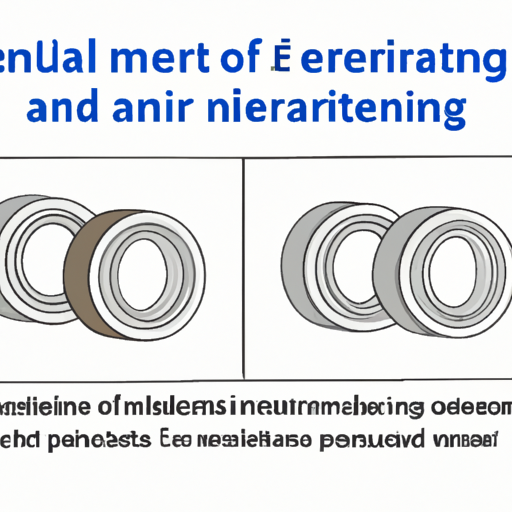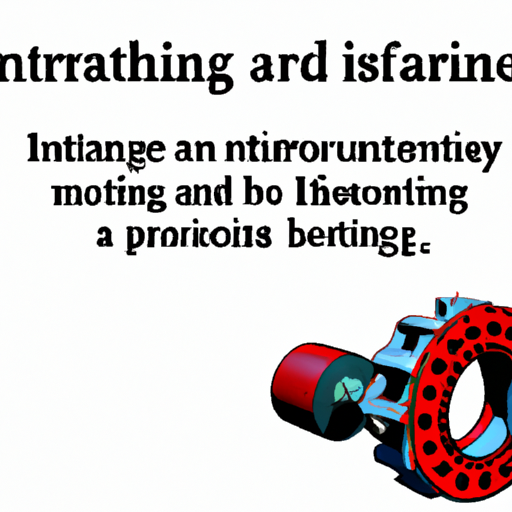The Importance of Bearings in Machinery and Equipment

Bearings play a crucial role in the functionality and efficiency of machinery and equipment across various industries. From automotive and aerospace to manufacturing and construction, bearings are essential components that enable smooth and precise movement of rotating parts. In this article, we will explore the significance of bearings, their types, and the importance of proper maintenance for optimal performance.
What are Bearings?
Bearings are mechanical components that support and facilitate the movement of rotating parts, such as shafts, wheels, and gears. They reduce friction between moving parts and provide support and stability to ensure smooth operation. Bearings come in various shapes and sizes, depending on the application and load requirements.
Types of Bearings
There are several types of bearings used in different applications, each designed to handle specific loads and operating conditions. Some common types of bearings include:
1. Ball Bearings: Ball bearings are the most common type of bearings, consisting of a series of balls enclosed within a ring. They are suitable for high-speed applications and are known for their low friction and smooth operation.
2. Roller Bearings: Roller bearings are designed with cylindrical or tapered rollers that provide increased load capacity and better shock absorption. They are commonly used in heavy-duty applications, such as automotive and industrial equipment.
3. Thrust Bearings: Thrust bearings are designed to handle axial loads and provide support for rotating shafts in one direction. They are used in applications where high thrust capacity is required, such as gearboxes and machine tools.
4. Plain Bearings: Plain bearings, also known as bushings, are simple bearings that consist of a smooth, cylindrical surface for low-friction movement. They are commonly used in applications where lubrication is not readily available or where high temperatures are present.
Importance of Bearings in Machinery and Equipment
Bearings are essential components in machinery and equipment for several reasons:
1. Reduced Friction: Bearings reduce friction between moving parts, allowing for smooth and efficient operation. This results in less wear and tear on components and extends the lifespan of machinery and equipment.
2. Increased Load Capacity: Bearings are designed to support and handle various loads, including radial, axial, and combined loads. This enables machinery to operate under heavy-duty conditions without compromising performance.
3. Precision and Accuracy: Bearings provide precise and accurate movement of rotating parts, ensuring proper alignment and smooth operation. This is crucial in applications where precision is required, such as in automotive manufacturing and aerospace engineering.
4. Vibration Damping: Bearings help dampen vibrations and shocks generated during operation, reducing noise and increasing overall stability. This is important in applications where excessive vibrations can lead to equipment failure or decreased performance.
Maintenance of Bearings

Proper maintenance is essential to ensure the optimal performance and longevity of bearings in machinery and equipment. Some key maintenance practices include:
1. Lubrication: Bearings require proper lubrication to reduce friction and prevent wear. Regularly lubricating bearings with the recommended grease or oil can extend their lifespan and prevent premature failure.
2. Inspection: Regular inspection of bearings is necessary to detect any signs of wear, damage, or misalignment. By monitoring the condition of bearings, potential issues can be identified and addressed before they escalate.
3. Replacement: Bearings have a limited lifespan and will eventually wear out over time. It is important to replace bearings when they show signs of damage or wear to prevent equipment failure and downtime.
In conclusion, bearings play a vital role in the functionality and efficiency of machinery and equipment across various industries. They reduce friction, support heavy loads, provide precision movement, and dampen vibrations, all of which are essential for smooth operation. Proper maintenance is crucial to ensure the optimal performance and longevity of bearings, ultimately leading to increased productivity and reduced downtime. By understanding the importance of bearings and implementing proper maintenance practices, businesses can enhance the reliability and performance of their machinery and equipment.




 13869596835
13869596835